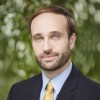US to ‘Aggressively Revoke’ Visas Held by Chinese Students

Secretary of State Marco Rubio pictured during testimony to the Senate Foreign Relations Committee on May 20.
Freddie Everett / State Department
Secretary of State Marco Rubio announced
State Department spokesperson Tammy Bruce declined to give examples of what fields will be prioritized for scrutiny, speaking at a press briefing
There are currently around 277,000 students from China studying in the U.S. China was the biggest source of international students in the U.S. for many years until being surpassed by India in 2023.
In recent years, policymakers in the U.S. have openly debated the rationale for admitting large numbers of students from China amid the growing rivalry between the two countries. Many Republicans have advocated for broad limits on academic partnerships and exchanges with China, including Rubio, who pressed the subject during his time as the top Republican on the Senate Intelligence Committee.
In 2018, Rubio asked
In 2020, President Donald Trump issued a policy barring visas
Congress has also steadily ratcheted up restrictions on academic exchanges with Chinese institutions and citizens. For instance, last year Congress passed legislation
Rubio advocated for a much more expansive restriction, applied across all 17 national labs overseen by the Department of Energy. That vision is now being advanced
Debate over risks
The premise that students are a significant vector for espionage or improper technology transfer has been questioned by leading figures in the research community. MIT professor Maria Zuber, who co-chaired the National Science, Technology, and Security Roundtable
Zuber pointed to the high stay-rates of graduates from China and their importance to the U.S. STEM workforce. About 80% of Chinese students who received STEM doctorates in the U.S. were still in the country 10 years later, according to a 2021 study by the National Science Foundation. She also noted that 43% of people in the U.S. science and engineering workforce with doctorates were born abroad, according to the same NSF study.
MIT has put “sensible limits” on recruitment from China, Zuber said, such as not accepting postdocs from China’s schools with close ties to the military, known as the “Seven Sons of National Defense.” But she said there is not enough evidence of risk to support broad restrictions on students. She also questioned the view that students from China are particularly vulnerable to coercion by the Chinese government due to their family ties back home.
“Vague, broad concerns about Chinese students are not warranted by the evidence I have seen. It is true that the Chinese government could go after the family of any Chinese student, but I am not aware of any evidence that this has resulted in any significant loss of scientific information from the U.S.,” she wrote.
Meanwhile, Senate Foreign Relations Committee Chair Jim Risch (R-ID) has emphasized
“Most Americans are shocked to hear that we have hundreds of thousands of Chinese students studying here in the United States, with only a tiny fraction of U.S. students studying in China. The difference is, Chinese students here in the U.S. are not studying ancient Greek history. They’re here studying STEM and national security issues,” Risch said. “And each one of them, whether they like it or not, is an agent of the Chinese Communist Party. When they go back, we all know they get debriefed and any information that they’ve garnered here in the United States becomes property of the Chinese Communist Party.”
“When a student comes over here, they’ve got to go back. If they don’t go back, there’s a family there, and we all know what the Chinese government does to families,” he later added.
Various Asian American advocacy groups have criticized the State Department’s move to broadly revoke visas.
“Chinese students contribute immensely to our campuses, communities, and economy,” said Gisela Perez Kusakawa, executive director of the Asian American Scholar Forum, in a statement.


